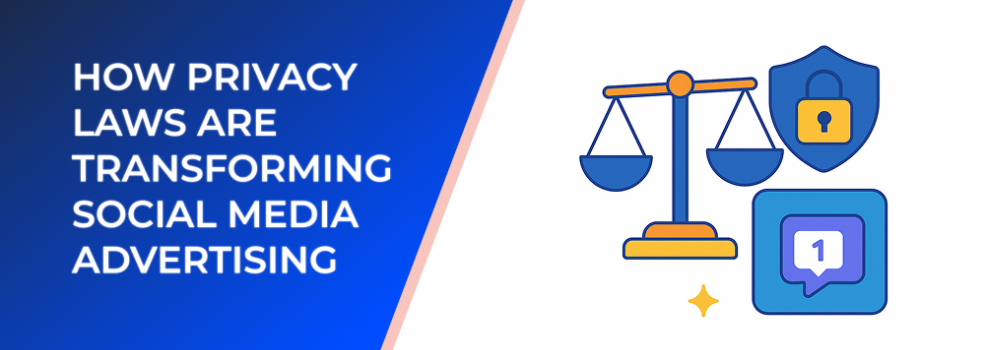Privacy legislation has fundamentally reshaped how advertisers collect, use, and measure data across social media platforms. Laws such as the GDPR, CCPA, and emerging global standards have accelerated a shift toward user consent, limited tracking, and privacy‑safe data practices. These changes have pushed platforms and advertisers to rethink long‑standing targeting, measurement, and optimization strategies.
The Decline of Third‑Party Tracking
Third‑party cookies and device‑level identifiers are rapidly disappearing. Platforms now rely heavily on aggregated, anonymized, or modeled data to maintain ad relevance.
Recent studies show that advertisers have experienced up to 40% reduction in observable user‑level signals compared to pre‑privacy‑regulation periods.
This loss of granularity affects:
-
Attribution accuracy
-
Retargeting depth
-
Frequency management
-
Audience segmentation
Rise of First‑Party and Consent‑Based Data
Because platforms can no longer depend on third‑party data, first‑party data has become the foundation of modern advertising.
Brands investing in consolidated first‑party data strategies report:
-
25–35% stronger targeting accuracy
-
14–20% lower acquisition costs
-
Improved algorithmic learning cycles
Consent is now the currency that enables effective personalization.
Modeled and Aggregated Targeting Takes the Lead
Since user‑level targeting is limited, social platforms have shifted to aggregated modeling approaches.
Algorithms now analyze patterns instead of individuals, identifying clusters of high‑intent users through machine‑learning signals.
Industry reports indicate that campaigns using modeled audiences achieve 18–26% better consistency than granular interest‑based campaigns in privacy‑restricted environments.
The Evolution of Retargeting
Retargeting has been one of the most heavily impacted areas.
With reduced tracking visibility, audience pools are often smaller and less precise. However, new server‑side tracking and privacy‑safe matching allow advertisers to rebuild performance.
Brands integrating conversion APIs have seen:
-
Up to 30% larger matched audiences
-
More stable event tracking across platforms
This shift enables more complete funnel strategies without violating privacy standards.
Attribution Reinvented
Legacy attribution models are no longer viable in a privacy‑first world.
Instead, advertisers rely on:
-
Modeled conversions
-
On‑device processing
-
Consent‑based tracking
-
Blended performance reporting
A 2025 analysis showed that adopting privacy‑safe attribution improved budget allocation efficiency by 21% compared to relying solely on last‑click or platform‑reported conversions.
Creative Now Plays a Larger Role
With less behavioral data available, creative quality and variation drive a larger percentage of campaign success.
High‑velocity creative frameworks enable platforms to identify emerging user clusters based on engagement signals.
Brands producing 8–12 creatives per monthly cycle report:
-
22% higher engagement rates
-
More reliable algorithmic learning
-
Better audience discovery
Global Regulations Continue to Expand
Emerging privacy laws across Asia‑Pacific, South America, and the Middle East signal ongoing tightening of data governance.
Analysts predict that by 2027, more than 70% of global digital activity will fall under some form of strict user‑data regulation.
Advertisers must remain agile and design systems that can adapt across regions.
Final Thoughts
Privacy laws are reshaping every part of social media advertising—from targeting to measurement to creative development. Success now depends on strong data foundations, adaptive strategies, and a clear understanding of how privacy‑first systems work. Advertisers who embrace these changes will remain competitive as regulations continue to evolve.

